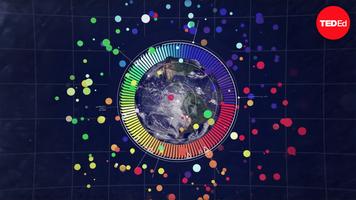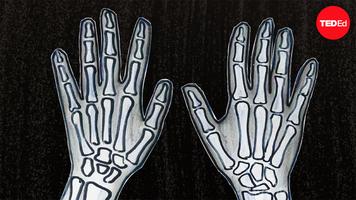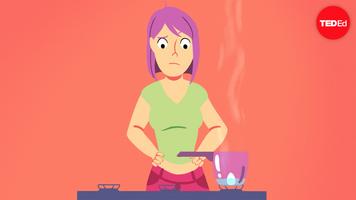Addison Anderson: The most groundbreaking scientist you've never heard of
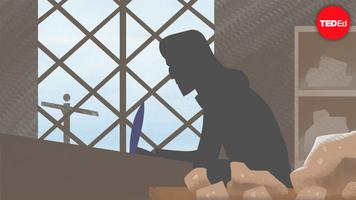
Seventeenth-century Danish geologist Nicolas Steno earned his chops at a young age, studying cadavers and drawing anatomic connections between species. Steno made outsized contributions to the field of geology, influencing Charles Lyell, James Hutton and Charles Darwin. Addison Anderson recounts Steno's little-known legacy and lauds his insisten...
Michael Marder: What is dust made of?
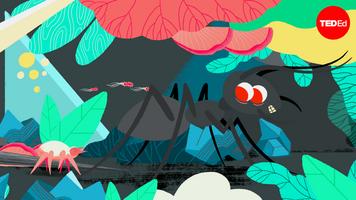
Less than a tenth the size of an ant, a dust mite’s whole world is contained in the dusty film under a bed or in a forgotten corner. This realm is right under our noses, but from our perspective, the tiny specks of brilliant color blend together into a nondescript grey. What are these colorful microscopic particles? Michael Marder explores the s...
Dasha Savage: How plants tell time
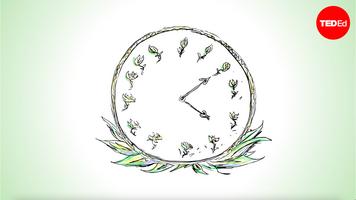
Morning glories unfurl their petals like clockwork in the early morning. A closing white waterlily signals that it’s late afternoon. And moon flowers, as their name suggests, only bloom under the night sky. What gives plants this innate sense of time? Dasha Savage investigates how circadian rhythms act as an internal timekeeper for flora and fau...
TED-Ed: 3 tips on how to study effectively
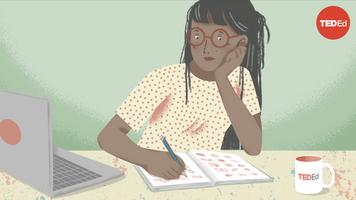
A 2006 study took a class of surgical residents and split them into two groups. Each received the same study materials, but one group was told to use specific study methods. When tested a month later, this group performed significantly better than the other residents. So, what were these methods? Explore how the brain learns and stores informati...
Yuan-Sen Ting: How do we study the stars?
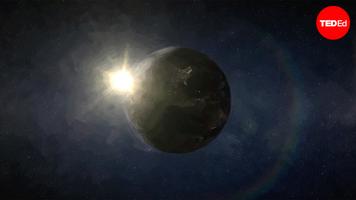
Our best technology can send men to the Moon and probes to the edge of our solar system, but these distances are vanishingly small compared to the size of the universe. How then can we learn about the galaxies beyond our own? Yuan-Sen Ting takes us into deep space to show how astronomers study the stars beyond our reach. [Directed by Tolga Yıldı...
Lieven Scheire: How quantum mechanics explains global warming
Jeff Dekofsky: Is math discovered or invented?
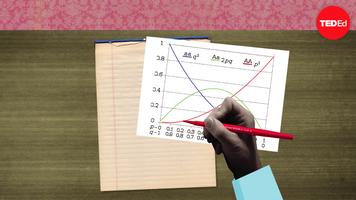
Would mathematics exist if people didn't? Did we create mathematical concepts to help us understand the world around us, or is math the native language of the universe itself? Jeff Dekofsky traces some famous arguments in this ancient and hotly debated question. [Directed by The Tremendousness Collective, narrated by Addison Anderson].
Jonathan J. O'Sullivan: The science of milk
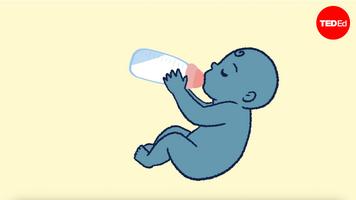
The milk industry produces in excess of 840 million tons of products each year. Why do humans drink so much milk? And given that all mammals lactate, why do we favor certain types of milk over others? Jonathan J. O’Sullivan describes how milk is made. [Directed by Biljana Labović, narrated by Addison Anderson].
Eleanor Nelsen: Why do your knuckles pop?
Graeme Anderson: The most lightning-struck place on Earth
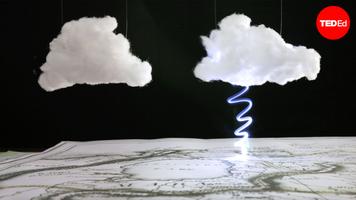
Lake Maracaibo is the stormiest place on the planet. Thunderstorms rage above this massive body of water for up to 200 days of the year, with each ear-splitting event lasting for several hours. But why? Graeme Anderson lists the factors that create Lake Maracaibo's seemingly ever-lasting storms. [Directed by D. Lee Peffer II, narrated by Addison...
James Zucker: How do you know you exist?
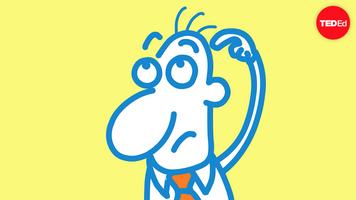
How do you know you're real? Is existence all just a big dream? Has some mad scientist duped us into simply believing that we exist? James Zucker investigates all of these questions (and more) in this mind-boggling tribute to René Descartes's "Meditations on First Philosophy." [Directed by Stretch Films, Inc., narrated by Addison Anderson].
Cláudio Guerra: Why the octopus brain is so extraordinary
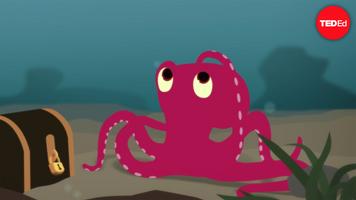
Octopuses have the ability to solve puzzles, learn through observation, and even use tools – just like humans. But what makes octopus intelligence so amazing is that it comes from a biological structure completely different from ours. Cláudio L. Guerra takes a look inside the amazing octopus brain. [Directed by Cinematic, narrated by Addison And...
Karen D. Davis: How does your brain respond to pain?
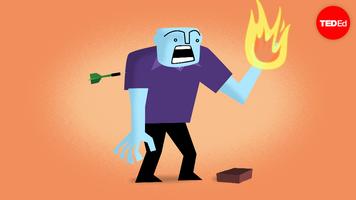
Everyone experiences pain -- but why do some people react to the same painful stimulus in different ways? And what exactly is pain, anyway? Karen D. Davis walks you through your brain on pain, illuminating why the "pain experience" differs from person to person. [Directed by Brett Underhill, narrated by Addison Anderson].
Chad Orzel: What is the Heisenberg Uncertainty Principle?
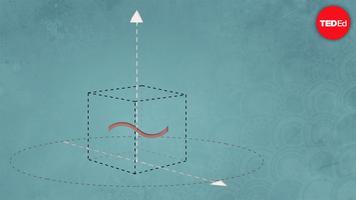
The Heisenberg Uncertainty Principle states that you can never simultaneously know the exact position and the exact speed of an object. Why not? Because everything in the universe behaves like both a particle and a wave at the same time. Chad Orzel navigates this complex concept of quantum physics. [Directed by Henrik Malmgren, narrated by Addis...
Bethany Rickwald and Hayley Levitt: Would you opt for a life with no pain?
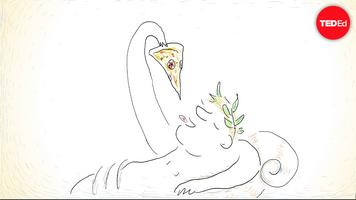
Imagine if you could plug your brain into a machine that would bring you ultimate pleasure for the rest of your life. The only catch? You have to permanently leave reality behind. Hayley Levitt and Bethany Rickwald explore Robert Nozick's thought experiment that he called the Experience Machine. [Directed by Avi Ofer, narrated by Addison Anderson].
Mia Nacamulli: What would happen if you didn't drink water?
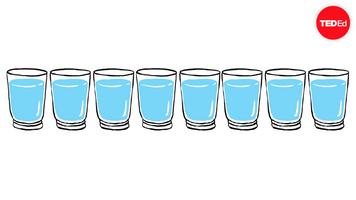
Water is essentially everywhere in our world, and the average human is composed of between 55 and 60% water. So what role does water play in our bodies, and how much do we actually need to drink to stay healthy? Mia Nacamulli details the health benefits of hydration. [Directed by Chris Bishop, narrated by Addison Anderson].
Scott A. Mellor: The myth of Thor's journey to the land of giants
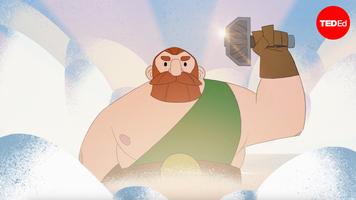
Thor—son of Odin, god of thunder, and protector of mankind—struggled mightily against his greatest challenge yet: opening a bag of food. How had the mighty god fallen so far? Scott A. Mellor tells the myth of Thor's journey to Utgard. [Directed by Rune F.B. Hansen, narrated by Addison Anderson, music by Cem Misirlioglu, Brooks Ball].
Clifford Robbins: What happens when you have a concussion?
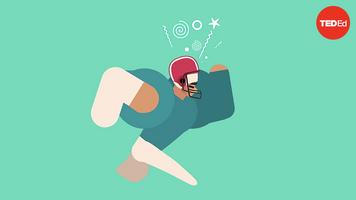
Each year in the United States, players of sports and recreational activities receive between 2.5 and 4 million concussions. How dangerous are all those concussions? The answer is complicated and lies in how the brain responds when something strikes it. Clifford Robbins explains the science behind concussions. [Directed by Rémi Cans, narrated by...
Emma Bryce: The power of the placebo effect
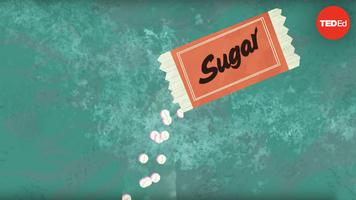
The placebo effect is an unexplained phenomenon wherein drugs, treatments, and therapies that aren't supposed to have an effect — and are often fake — miraculously make people feel better. What's going on? Emma Bryce dives into the mystery of placebos' bizarre benefits. [Directed by Hernando Bahamon, narrated by Addison Anderson].
Eleanor Nelsen: How to unboil an egg
Dan Adams: A brief history of goths
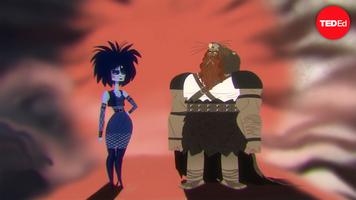
What do fans of atmospheric post-punk music have in common with ancient barbarians? Not much ... so why are both known as "goths"? Is it a weird coincidence – or is there a deeper connection stretching across the centuries? Dan Adams investigates. [Directed by Globizco, narrated Addison Anderson, music by Manuel Borda].
Yossi Elran: Can you solve the prisoner boxes riddle?
.jpg?h=200)
Your favorite band is great at playing music...but not so great at being organized. They keep misplacing their instruments on tour, and it's driving their manager mad. Can you solve the brain-numbing riddle their manager assigns them and make sure the band stays on their label? Yossi Elran shows how. [Directed by Artrake Studio, narrated by Addi...
Krishna Sudhir: What happens during a heart attack?
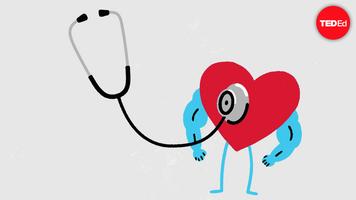
Approximately seven million people around the world die from heart attacks every year. And cardiovascular disease, which causes heart attacks and other problems like strokes, is the world's leading killer. So what causes a heart attack? Krishna Sudhir examines the leading causes and treatments of this deadly disease. [Directed by Chadwick Whiteh...
Claudia Aguirre: What makes tattoos permanent?
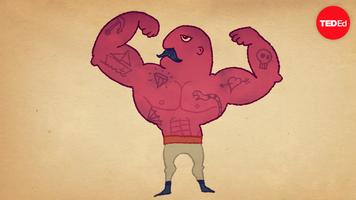
The earliest recorded tattoo was found on a Peruvian mummy in 6,000 BC. That's some old ink! And considering humans lose roughly 40,000 skin cells per hour, how do these markings last? Claudia Aguirre details the different methods, machines and macrophages (you'll see) that go into making tattoos stand the test of time. [Directed by TOGETHER, na...
Samantha Agoos: 5 tips to improve your critical thinking
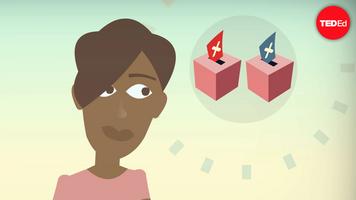
Every day, a sea of decisions stretches before us, and it's impossible to make a perfect choice every time. But there are many ways to improve our chances — and one particularly effective technique is critical thinking. Samantha Agoos describes a 5-step process that may help you with any number of problems. [Directed by Nick Hilditch, narrated b...
David Lunney: Where does gold come from?

Did you know that gold is extraterrestrial? Instead of arising from our planet's rocky crust, it was actually cooked up in space and is present on Earth because of cataclysmic stellar explosions called supernovae. CERN Scientist David Lunney outlines the incredible journey of gold from space to Earth. [Directed by Andrew Foerster, narrated by Ad...
Ivan Seah Yu Jun: What is Alzheimer's disease?
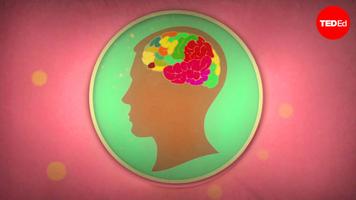
Alzheimer's disease is the most common cause of dementia, affecting over 40 million people worldwide. And though it was discovered over a century ago, scientists are still grappling for a cure. Ivan Seah Yu Jun describes how Alzheimer's affects the brain, shedding light on the different stages of this complicated, destructive disease. [Directed ...
Alex Rosenthal: The Prison Break | Think Like A Coder, Ep 1
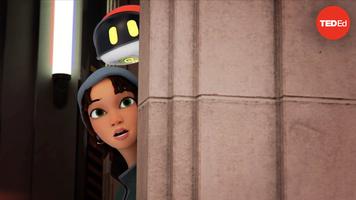
This is episode 1 of our animated series "Think Like A Coder." This 10-episode narrative follows a girl, Ethic, and her robot companion, Hedge, as they attempt to save the world. The two embark on a quest to collect three artifacts and must solve their way through a series of programming puzzles. [Directed by Kozmonot Animation Studio, narrated ...
Marc Fagelson: What's that ringing in your ears?
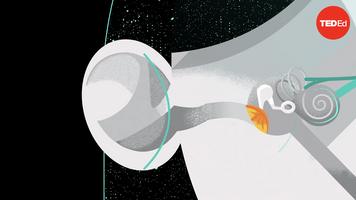
Tinnitus has been bothering humanity since Ancient Babylon, plaguing everyone from Leonardo da Vinci to Charles Darwin. Today, roughly one in seven people worldwide experiences this auditory sensation. So what exactly is tinnitus, and where does this persistent sound come from? Marc Fagelson travels into the auditory system to explore the loss o...
Antonio Machado-Allison: What happens when you fall into piranha-infested waters?
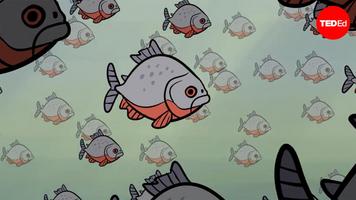
You're peering into the Amazon River when, suddenly, you lose your footing and fall. Piranhas dart about in the rapidly approaching water. So, are you doomed? Will your fall trigger a feeding frenzy that will skeletonize your body within minutes? Antonio Machado-Allison shares what we know about these purportedly ferocious fish. [Directed by Ant...
